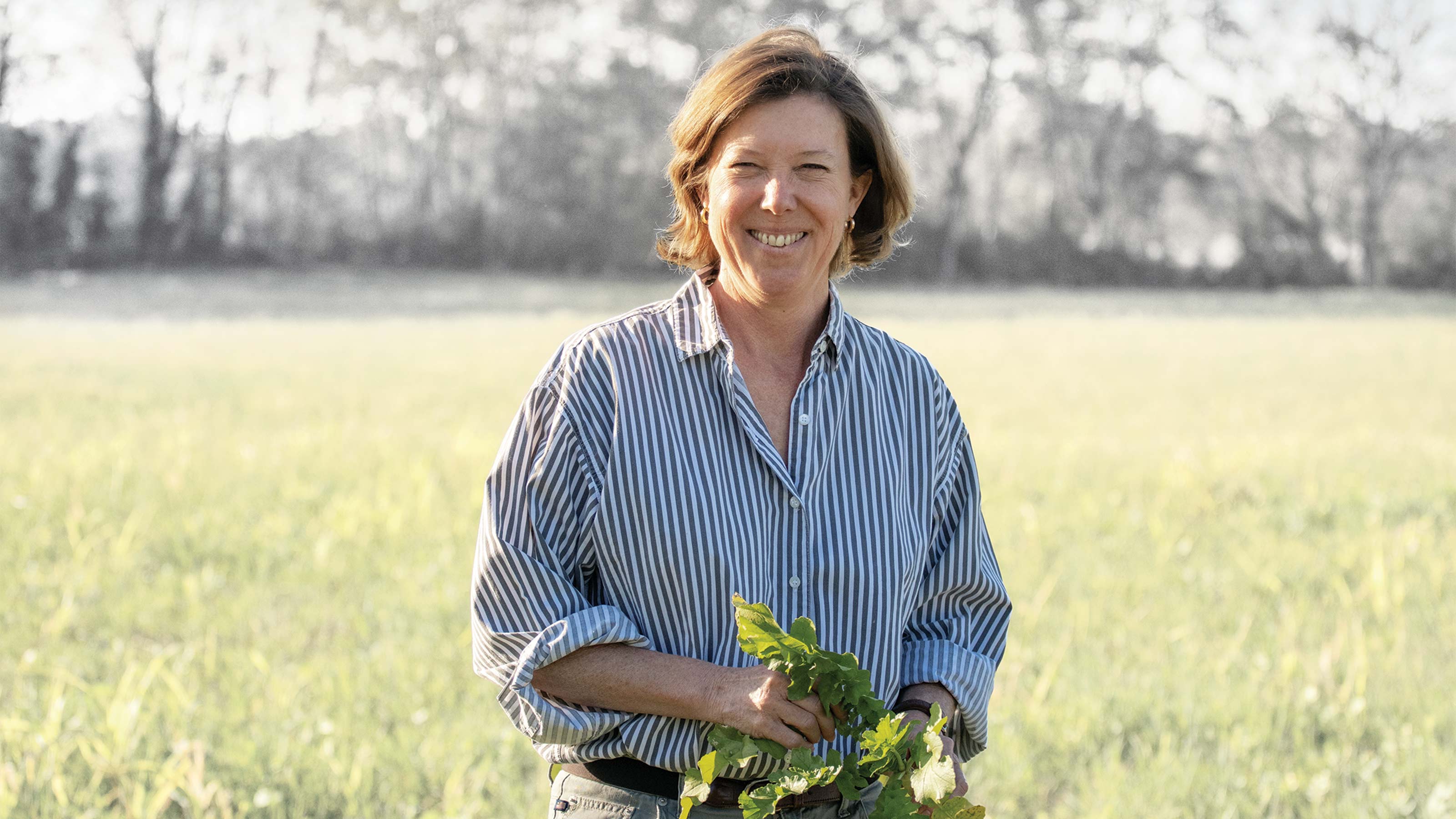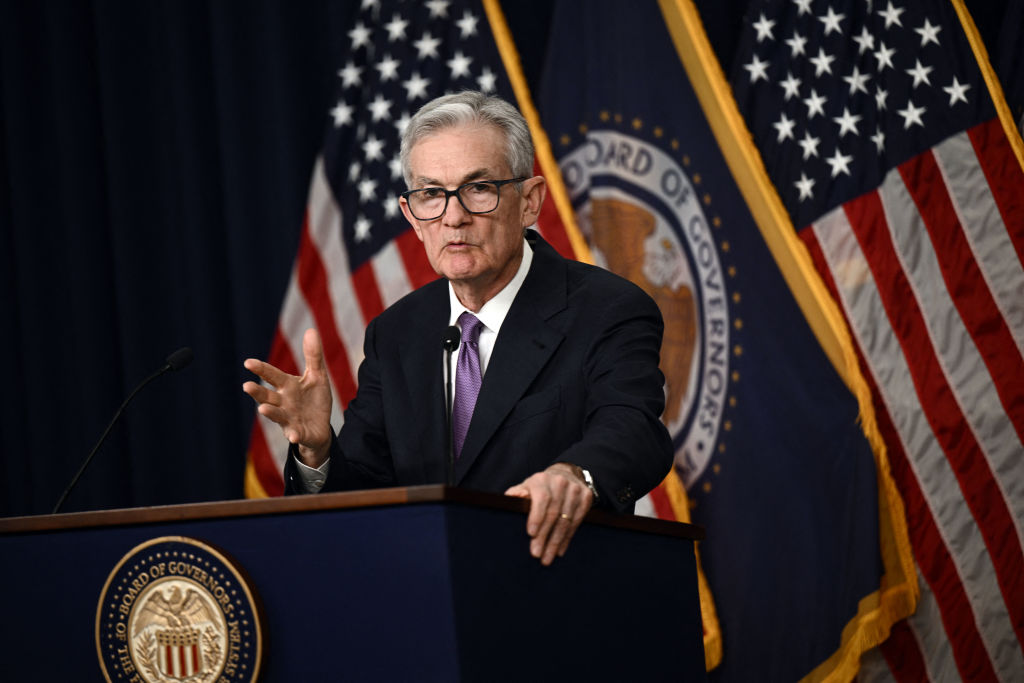Growing the Family Business
This Alabama farmer navigates the uncertainties of tariffs, COVID and unpredictable weather.


Profit and prosper with the best of Kiplinger's advice on investing, taxes, retirement, personal finance and much more. Delivered daily. Enter your email in the box and click Sign Me Up.
You are now subscribed
Your newsletter sign-up was successful
Want to add more newsletters?

Delivered daily
Kiplinger Today
Profit and prosper with the best of Kiplinger's advice on investing, taxes, retirement, personal finance and much more delivered daily. Smart money moves start here.

Sent five days a week
Kiplinger A Step Ahead
Get practical help to make better financial decisions in your everyday life, from spending to savings on top deals.

Delivered daily
Kiplinger Closing Bell
Get today's biggest financial and investing headlines delivered to your inbox every day the U.S. stock market is open.

Sent twice a week
Kiplinger Adviser Intel
Financial pros across the country share best practices and fresh tactics to preserve and grow your wealth.

Delivered weekly
Kiplinger Tax Tips
Trim your federal and state tax bills with practical tax-planning and tax-cutting strategies.

Sent twice a week
Kiplinger Retirement Tips
Your twice-a-week guide to planning and enjoying a financially secure and richly rewarding retirement

Sent bimonthly.
Kiplinger Adviser Angle
Insights for advisers, wealth managers and other financial professionals.

Sent twice a week
Kiplinger Investing Weekly
Your twice-a-week roundup of promising stocks, funds, companies and industries you should consider, ones you should avoid, and why.

Sent weekly for six weeks
Kiplinger Invest for Retirement
Your step-by-step six-part series on how to invest for retirement, from devising a successful strategy to exactly which investments to choose.
Profile
Who: Larkin Martin, 57 What: Farm owner and manager Where: Courtland, Ala.
How big is your farming operation? We have about 12 employees who help farm owned and rented land. I am the seventh generation of my family to manage a continuous operation. We grow cotton, corn, soybeans and wheat, although the size and crop mix has changed many times over the years.
From just $107.88 $24.99 for Kiplinger Personal Finance
Become a smarter, better informed investor. Subscribe from just $107.88 $24.99, plus get up to 4 Special Issues

Sign up for Kiplinger’s Free Newsletters
Profit and prosper with the best of expert advice on investing, taxes, retirement, personal finance and more - straight to your e-mail.
Profit and prosper with the best of expert advice - straight to your e-mail.
Who are your buyers? The corn we raise tends to have a very local market, to the people who supply the poultry industry. Most of our wheat is barged out to New Orleans to be exported. And a lot of cotton is exported in raw form to manufacturers of yarns all over the world. Asia—especially China—is the largest region of textile manufacturing. We sell soybeans mostly to a big industrial facility close to here.
Has the pandemic affected you? Farm work was deemed essential, so we’ve had to change very little about our operational procedures. And the nature of the work is socially distant—although I’ve had a member of my family come down with the virus, and I had to isolate from the employees. Luckily, we haven’t had an employee come down with the virus so far. But the pandemic disrupted trade and supply-chain patterns that were already under strain. Preceding COVID, we had a downturn in prices for most of the commodities we raise. And in some cases, this downturn was exacerbated by COVID’s impacts on trade.
Did tariffs imposed by the Trump administration affect your production in recent years? The tariffs disrupted trade patterns—significantly with China. And China’s purchases of U.S. commodities declined dramatically in response to them. So there was a price downturn. But recently, China’s purchases have come back significantly in volume, and there has been a positive price impact.
Have farm bill programs supported your operations? They have helped to offset the negative implications of the price declines. While we’re grateful for the taxpayer assistance, we would expect that cannot continue. I’d much prefer to have prices that offer profitability for our operation, and most farmers would probably agree.
Has severe weather like we’ve seen in Iowa and elsewhere had an impact on your crops? Variable weather always has an impact. This year has been very wet. We’re inland enough that we haven’t had too much impact from wind, which can be devastating closer to the coasts, but we have had rain from the hurricanes. And in Iowa, because so much crop was lost in that weather event, corn prices went up.
You have advocated for more technology for family farmers. What’s holding that back? The ability to use technology widely is inhibited by a lack of internet connectivity and access to broadband in rural areas. And it’s a very fractured and splintered customer base for someone developing farming technology; it can be very hard to reach. Most of the data is coming in from various machines or sensors or service providers and is in multiple file formats. Combining it in a way that helps you assess cost and profitability is like piecing together a difficult jigsaw puzzle.
What are your hopes for the coming year? That Washington will work to improve the disruptions from COVID and the tariffs and rebuild a system of predictable, multilateral trade. It’s very difficult to build confidence in supply chains when the political system disrupts them in a random manner.
Profit and prosper with the best of Kiplinger's advice on investing, taxes, retirement, personal finance and much more. Delivered daily. Enter your email in the box and click Sign Me Up.

Emma Patch joined Kiplinger in 2020. She previously interned for Kiplinger's Retirement Report and before that, for a boutique investment firm in New York City. She served as editor-at-large and features editor for Middlebury College's student newspaper, The Campus. She specializes in travel, student debt and a number of other personal finance topics. Born in London, Emma grew up in Connecticut and now lives in Washington, D.C.
-
 Look Out for These Gold Bar Scams as Prices Surge
Look Out for These Gold Bar Scams as Prices SurgeFraudsters impersonating government agents are convincing victims to convert savings into gold — and handing it over in courier scams costing Americans millions.
-
 How to Turn Your 401(k) Into A Real Estate Empire
How to Turn Your 401(k) Into A Real Estate EmpireTapping your 401(k) to purchase investment properties is risky, but it could deliver valuable rental income in your golden years.
-
 My First $1 Million: Retired Nuclear Plant Supervisor, 68
My First $1 Million: Retired Nuclear Plant Supervisor, 68Ever wonder how someone who's made a million dollars or more did it? Kiplinger's My First $1 Million series uncovers the answers.
-
 9 Types of Insurance You Probably Don't Need
9 Types of Insurance You Probably Don't NeedFinancial Planning If you're paying for these types of insurance, you may be wasting your money. Here's what you need to know.
-
 Amazon Resale: Where Amazon Prime Returns Become Your Online Bargains
Amazon Resale: Where Amazon Prime Returns Become Your Online BargainsFeature Amazon Resale products may have some imperfections, but that often leads to wildly discounted prices.
-
 Fed Leaves Rates Unchanged: What the Experts Are Saying
Fed Leaves Rates Unchanged: What the Experts Are SayingFederal Reserve As widely expected, the Federal Open Market Committee took a 'wait-and-see' approach toward borrowing costs.
-
 Fed Sees Fewer Rate Cuts in 2025: What the Experts Are Saying
Fed Sees Fewer Rate Cuts in 2025: What the Experts Are SayingFederal Reserve The Federal Reserve cut interest rates as expected, but the future path of borrowing costs became more opaque.
-
 Fed Cuts Rates Again: What the Experts Are Saying
Fed Cuts Rates Again: What the Experts Are SayingFederal Reserve The central bank continued to ease, but a new administration in Washington clouds the outlook for future policy moves.
-
 Fed Goes Big With First Rate Cut: What the Experts Are Saying
Fed Goes Big With First Rate Cut: What the Experts Are SayingFederal Reserve A slowing labor market prompted the Fed to start with a jumbo-sized reduction to borrowing costs.
-
 Fed Holds Rates Steady, Sets Stage for Easing: What the Experts Are Saying
Fed Holds Rates Steady, Sets Stage for Easing: What the Experts Are SayingFederal Reserve The Federal Reserve left interest rates unchanged but signaled it could pivot to lowering borrowing costs sooner rather than later.
-
 Fed Holds Rates Steady, Sees Just One Cut This Year: What the Experts Are Saying
Fed Holds Rates Steady, Sees Just One Cut This Year: What the Experts Are SayingFederal Reserve The Federal Reserve kept interest rates unchanged and penciled in one quarter-point cut in 2024.